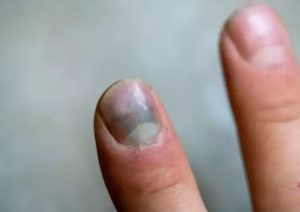Lifestyle
How the colour of your nails can reveal cancer

Nails are an integral part of our body. It helps protect our fingers and toes and lets us do activities that would not be possible without them, like scratching or picking things up.
Given that it receives blood and nutrition from the body, it can signal any deficiency or hidden ailments you may be suffering from.
Changes in the colour of the nails may not seem alarming in most cases. However, at times it can be a tell-tale sign of chronic illnesses, especially cancer.
That said, let us look at what your nails can reveal about your health.
Your nails can say a lot about your health
Nail changes can occur in anyone, depending on the kind of illnesses, deficiencies a person is experiencing.
While yellowing or thickening of nails can suggest a fungal infection, brittle nails may be a signifier of a thyroid disease or anemia. If you see pitting i.e. small cracks in your nails, it may indicate psoriasis or alopecia areata. Additionally, white lines underneath your nails can mean that you’re suffering with a kidney or a liver disease.
The best way is to get yourself tested by a medical professional. Early diagnosis can protect you from as deadly a disease as cancer.
Change in nail colour can be a marker of cancer
A change in the nail colour should never be neglected, for it may indicate cancer.
Subungual melanoma, a type of skin cancer can be detected through the changes in the colour of the fingernails. It can appear in the form of a dark line under your nails, leading to nail discoloration. It can create dark areas near the cuticle of the nail, also known as subungual lesions.
Subungual melanoma can show other symptoms

Apart from the formation of black lines on your finger or toe nails, there are other signs of subungual melanoma that can appear on your nails.
– Weak, brittle nails
– A bruise on your nail, which is difficult to heal
– Bleeding around nails
– Thinning, cracking of the nail plate
– Blackish-brownish streaks that continue to grow
Treatment is key
Considering melanoma is life-threatening, if left untreated, it can be fatal.
A physical exam and a biopsy may help with the diagnosis. That said, treatment would involve surgery, chemotherapy, radiation therapy, immunotherapy, and targeted therapies, depending on how far the cancer has progressed.










